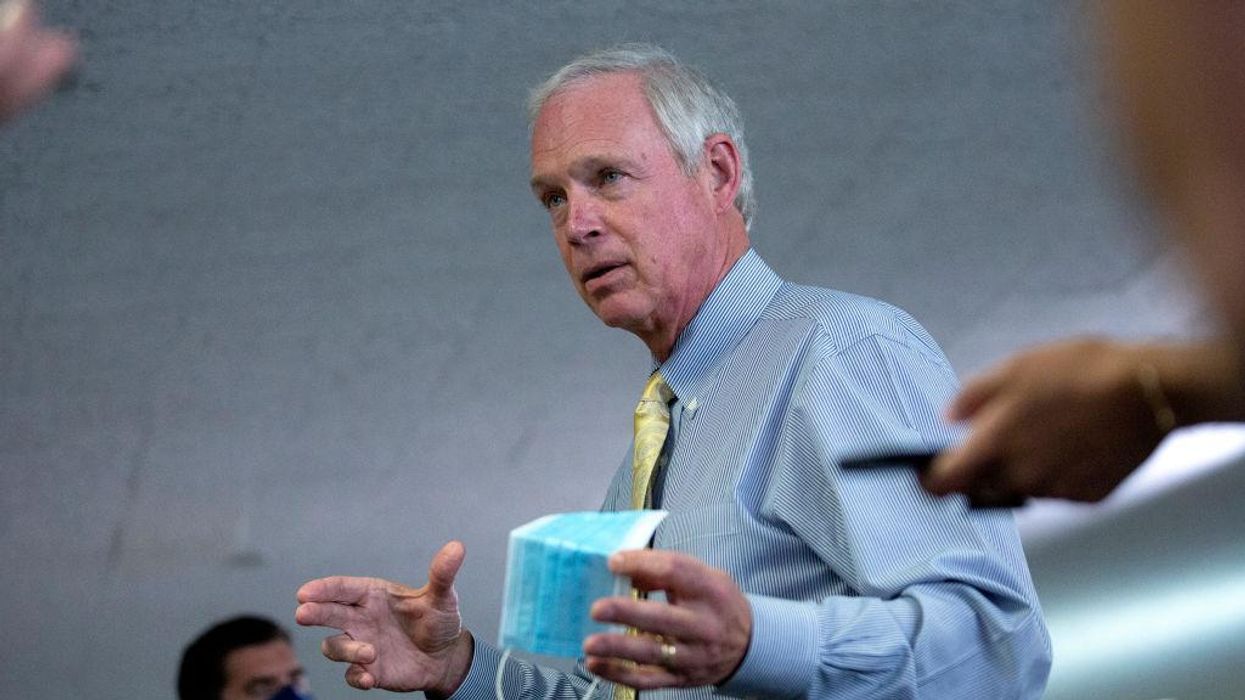
Stefani Reynolds/Getty Images

'It takes our debt from $27.4 trillion to $28.4 trillion in a couple months. With doing virtually no revisions, no improvements.'
Sen. Ron Johnson (R-Wis.) on Friday blocked an effort by Sens. Josh Hawley (R-Mo.) and Bernie Sanders (I-Vt.) to pass a new round of $1,200 stimulus checks to Americans, arguing for more "targeted" relief to help Americans struggling during the coronavirus pandemic.
Hawley and Sanders had asked for the unanimous consent of the Senate to pass a bill providing another one-time payment of $1,200 to individuals earning less than $75,000, using the CARES Act stimulus bill Congress passed in March as a model for their legislation. Johnson supported that effort in March, but now says Congress cannot ignore the growing national debt and should work harder to ensure stimulus money has its intended effect.
Acknowledging the need for Congress to provide financial support to businesses and families in need "through no fault of their own," Johnson criticized the "shogun approach" of the proposed relief package and called for more "targeted" relief.
"One of the reasons we are $27.4 trillion in debt is we only speak about need, we only talk in terms of compassion — we all have compassion, we all want to fulfill those needs — we don't talk in numbers very often. We don't analyze the data. We don't take a look at what we did in the past and see, did it work? Or didn't it work?" Johnson said on the Senate floor.
"We will not have learned the lessons from our very hurried, very rushed, very massive, earlier relief packages. We're just going to do more of the same, another trillion dollars. It takes our debt from $27.4 trillion to $28.4 trillion in a couple months. With doing virtually no revisions, no improvements," he warned.
The current stimulus package being considered by the Senate would cost about $900 billion, Axios reported. Johnson raised concerns about how Congress is "mortgaging our children's future."
He noted that the last round of "economic impact payments" to Americans cost about $275 billion and sent checks to 115 million households at a time when 25 million people were unemployed.
"That was about 4.5 [times] more households than the number of jobs lost," Johnson said, going on to explain that the Hawley-Sanders bill would provide payments to a number of households 12.6 times greater than the 9 million Americans currently unemployed.
"I think it's important to ask, well, how was that money spent? Was it really spent on essentials? Was this money really needed? Was there any hope of actually that money being stimulative to our economy?" Johnson asked.
He cited a study conducted by the Federal Reserve Bank of New York issued on Oct. 13, 2020, that surveyed American households and found that only 18% of the stimulus check funds was spent on essential items, 8% was spent on nonessential items, and 3% was donated for a total of 29%, which the study called the "marginal propensity to consume."
Most households, Johnson said, either saved the stimulus money or used it to pay off debt. The survey also asked respondents what they would do with another $1,500 check and only about 24% would spend or donate the money while the remaining 76% would use the funds for savings or debt repayment.
"I don't think you can take a look at these direct payments to individuals as stimulative," Johnson argued. "Obviously, 18%-24% is spent on essential items. We ought to figure out how to provide that money so people can spend it on essentials."
After Johnson concluded speaking, Hawley rose to respond, saying, "Nothing could be more targeted, no relief could be more important than relief for working people."
"What I'm proposing is what every senator has supported already," Hawley continued. "What I'm proposing will give working folks in my state and across the country a shot … at getting back up on their feet."
This debate over direct stimulus payments is occurring under the backdrop of a potential government shutdown that will happen if Congress does not pass new spending legislation before midnight. Democrats and Republicans are negotiating on a continuing resolution to keep the government open, with the central conflict between the parties being what additional coronavirus relief should look like. One compromise currently under consideration is smaller $600 direct payments, half of what Hawley and Sanders have proposed, in addition to small business funding and an extended $300 federal unemployment benefit.
The Daily Caller reported that after Hawley finished speaking, he walked out of the Senate chamber and told reporters he would not allow a government funding bill to pass until he's assured there are direct payments to Americans included.
"I'm not going to allow a [continuing resolution] to go through until I know what's actually in the package," Hawley said. "It'd better include direct assistance at a substantial level."